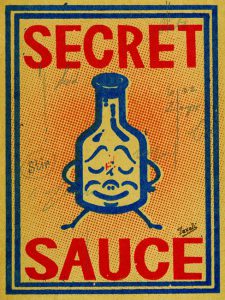I am asked all the time, what makes a good candidate?
While we all know a great candidate can get beat when the political environment and/or district are not in his/her favor or at least even, we will set this aside.
We will just look at the simple question, “What makes a good/great candidate?”

The Secret Sauce
The ability to craft and tell a coherent story that emotionally connects with voters. There it is – that is the secret sauce.
While all political consultants are all excited about the latest scientific studies, big data, predictive analysis, and changes in media consumption, it still comes back to the basic building block of good ol’ fashion storytelling.
It begins with the Story
Before we write campaign plans, strategies, tactics, we need the story to tell.
When we first meet with a candidate, we ask them the basic question: “Please, why you are running?”
If the candidate tells me that they are going to run an “issue-orientated” campaign and proceeds to rattle off 10 issues with solutions and facts, we know that we have a ton of work to do or that we should focus on other candidates.
What we really want to hear is: “Thanks for asking Alex, you handsome devil, please allow me to tell you a story…..”
I dream to hear a candidate tell a story connecting with the values and emotions of most of the voters AND contains BOTH protagonists and antagonists.
 We need a story that defines who they are and what they stand for, and a critical element of the story is that it will be rejected by 20-30% of the voters.
We need a story that defines who they are and what they stand for, and a critical element of the story is that it will be rejected by 20-30% of the voters.
If they tell us a story that attempts to attract 100% of the vote and never offends anyone, we want out or a really weak field. Without conflict, there is no story! Yes, the tone is up for discussion, but we must have conflict.
The dream candidate? The dream candidate can make the difficult transition of constructing the story without themselves as the central character. However, in the beginning, we will just take a story, any story.
Why? This is not because I think it works.
It is science.
The Science of Story
Our brains need stories. In fact, our brains actively search for stories, and when our brains have difficulty, our brains will just make stuff up to fill in the gaps.
It appears from all the research, our feeble brains must have stories to construct neat, little packages so that we can retain & understand. It is why we have listened to and told stories since we were children, it is why Hollywood exists.
If I could, I would require the following reading list for candidates to include but not limited to:
- McKee, Robert. Story: Substance, Structure, Style, and the Principles of Screenwriting. HarperCollins Publishers, 1997.
- Mark, Margaret, and Carol S. Pearson. The Hero and the Outlaw: Building Extraordinary Brands Through the Power of Archetypes. New York: McGraw-Hill, 2001.
- Sachs, Jonah (2012-06-19). Winning the Story Wars: Why Those Who Tell (and Live) the Best Stories Will Rule the Future Harvard Business Review Press.
Summary of the Importance of Political Stories
I concede, it is probably asking too much to have candidates – especially first time candidates – approach campaigns with fully crafted stories.
However, instead of jumping right to numbers and strategies, political consultants need to spend more time upfront convincing our clients the importance of storytelling and then working with them developing their story.
